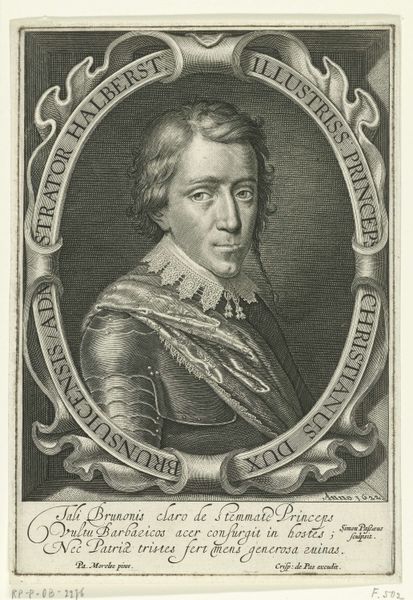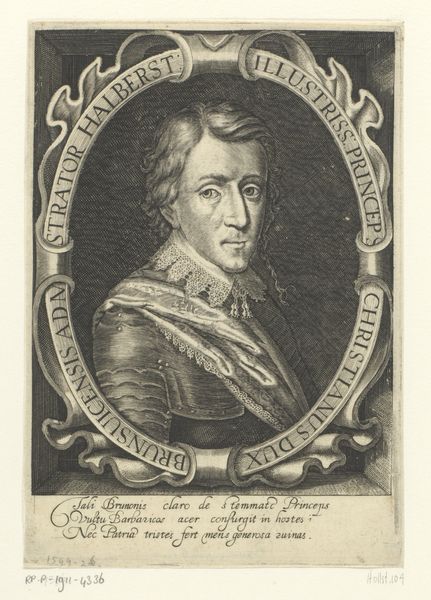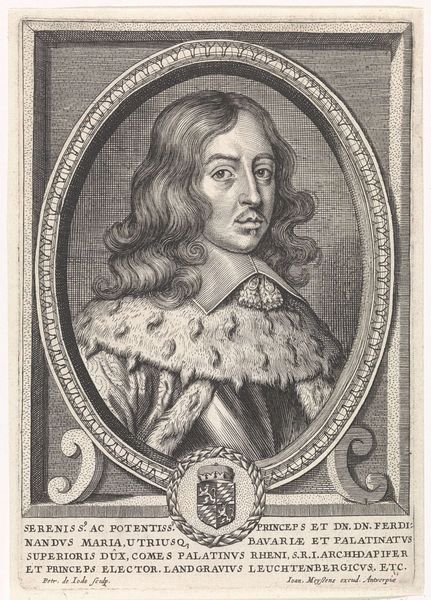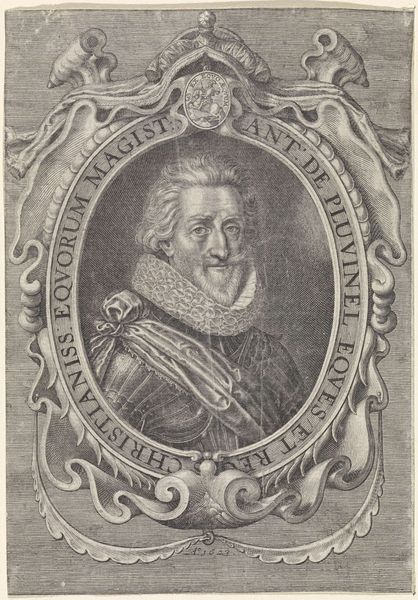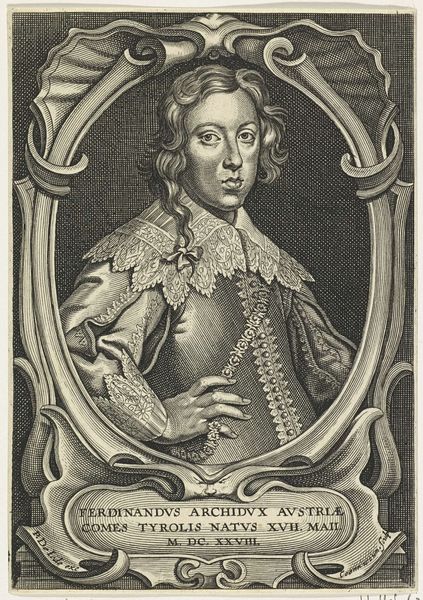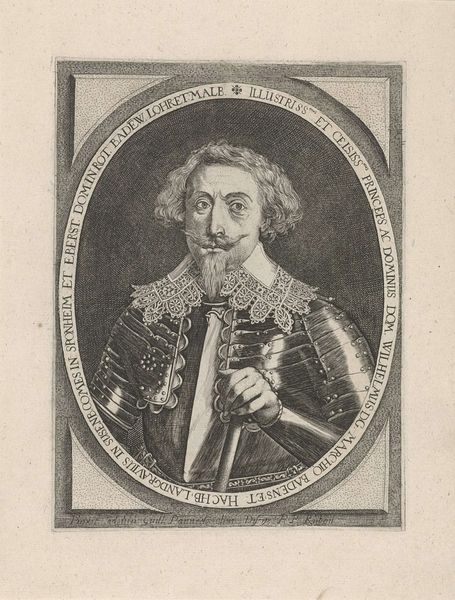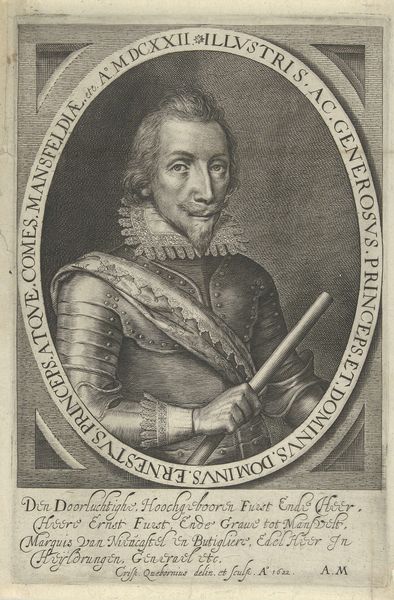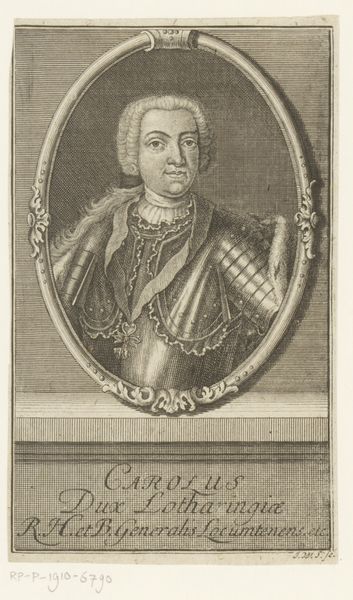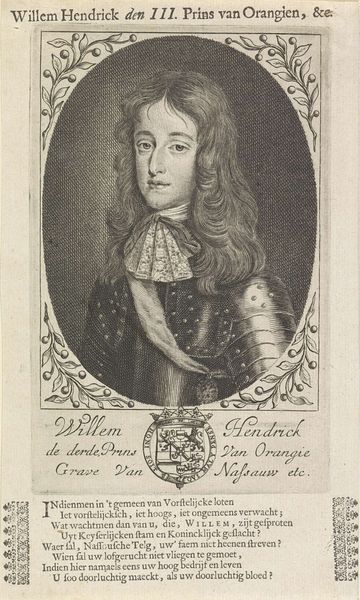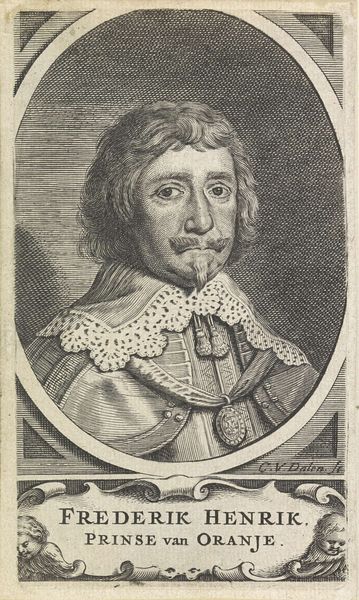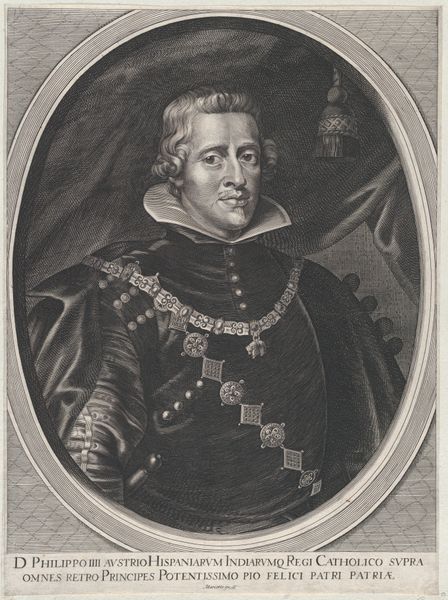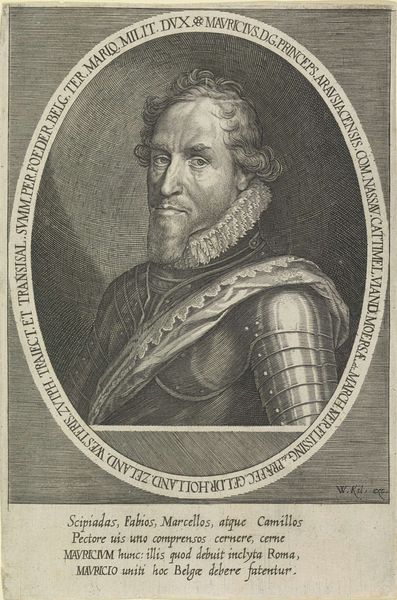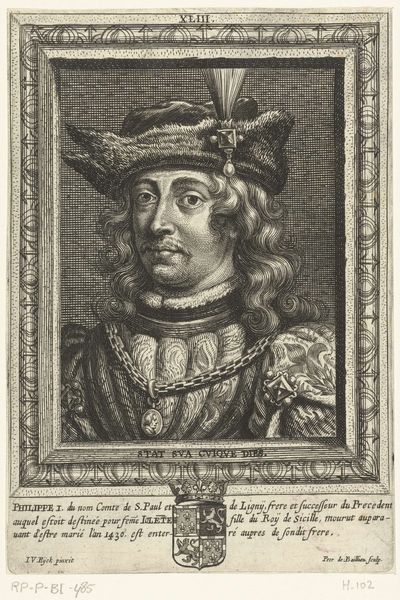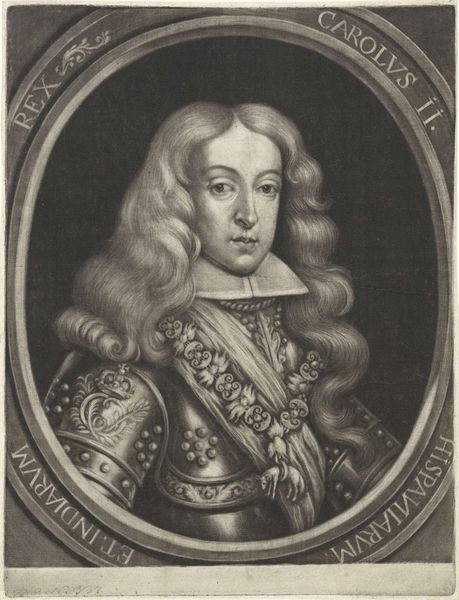
engraving
portrait
baroque
old engraving style
caricature
portrait reference
portrait drawing
history-painting
engraving
Dimensions: height 199 mm, width 126 mm
Copyright: Rijks Museum: Open Domain
Willem Hondius made this portrait of Christian, Duke of Brunswick-Wolfenbuttel, sometime before 1660, using an engraving technique. The image is achieved by cutting lines into a metal plate, inking the surface, and then wiping it clean, leaving ink only in the incised lines. This plate is then pressed onto paper, transferring the image. Engraving was an essential method for circulating images widely in early modern Europe. Its precision allowed for detailed representation, as we see in the Duke's armor and lace collar, signs of his status and profession as a military leader. The Latin inscription emphasizes his role as a defender of religious freedom. Consider the labor involved: Hondius meticulously cut each line, and his workshop would have printed numerous copies. These prints were commodities, bought and sold, and vectors of political identity, aligning viewers with the Duke’s cause. By focusing on the materials and making of this print, we move beyond a simple portrait. We see it as an object deeply embedded in the social, political, and economic life of its time.
Comments
No comments
Be the first to comment and join the conversation on the ultimate creative platform.
